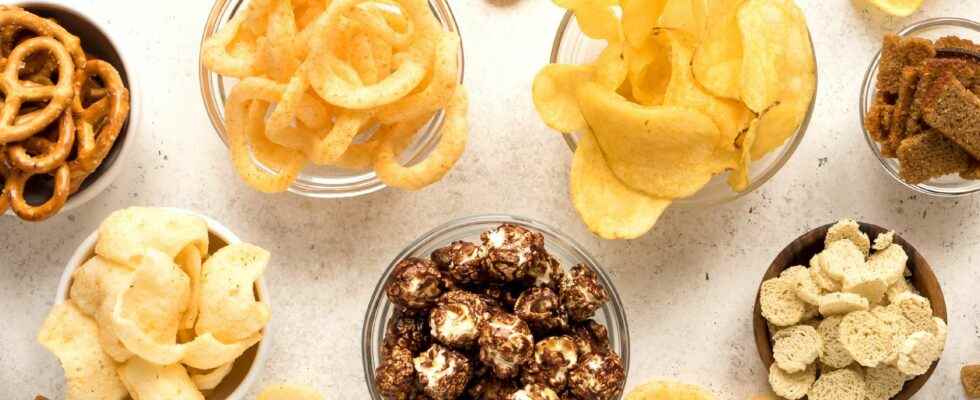You will also be interested
[EN VIDÉO] Modern food: the great advances and failures of half a century Is the food industry feeding us badly? Yes and no, demonstrates Dr. Cocaul, nutritionist and columnist at Futura. Our modern food is plentiful and well secured. However, the preparations and packaging are too attractive, while the reinforcement of sugar and salt makes it too rich, causing real epidemics, starting with obesity.
Present in almost all the shelves of our supermarkets, ultra-processed foods are often characterized by low nutritional quality and by the presence of food additives and compounds from contact packaging. If they compose 31% of the French platethe situation is worse in the United States, where they represent 57% of the total daily calories consumed by adults.
A team led by researchers from Tufts and Harvard universities shows a link between ultra-processed foods and the colorectal cancer at men’s. The results of their work have just been published in The British Medical Journal.
Why a new study?
Previous studies have reported that a high consumption of ultra-processed foods was associated with an increased risk of developing all types of cancers. The researchers estimated that, among them, the colorectal cancer could be particularly influenced by diet.
” The processed meatsmost of which fall into the category of ultra-processed foods, constitute a risk factor significant colorectal cancersaid in a press release of Tufts University Lu Wang, co-author of the study. Ultra-processed foods are also high in sugars added and low in fiber, which contributes to weight gain andobesity ; yet obesity is a proven risk factor for colorectal cancer. »
Three large American cohorts brought together more than 200,000 participants (including ¾ women) as part of a 25-year study. Every four years, each participant was required to enter their frequency of consumption of approximately 130 foods, divided into categories of ultra-processed foods. The participants themselves were then classified according to their frequency of consumption of this type of food.
Worst categories: meat or fish products and sugary drinks
Unsurprisingly, the biggest consumers ofultra-processed foods were most at risk of developing colorectal cancer. However, if the overall link was established for men (29% additional risk compared to low consumers), women were only concerned by certain ultra-processed food subgroups.
Among men, the strongest link between ultra-processed foods and colorectal cancer came from ready-to-eat meat products (such as sausages, bacon or ham) or fish. The second category of offending foods included sugary drinkssuch as sodas and fruit drinks.
If the results found are different for women, “ further research will need to determine if there is a true gender difference in the associations, or if other uncontrolled confounders in women have attenuated the link write the authors. In the department of surprises, the latter found an inverse association between ultra-processed dairy foods such as certain yogurts and the risk of colorectal cancer in women. These foods could counteract the harmful effects of other types of ultra-processed foods in women, our diet resulting from a combination of nutrients.
How can this impact of ultra-transformation on our health be explained? ” The potential role of food additives in altering the gut microbiota and promotinginflammationas well as contaminants formed during food processing or migrating from food packaging can all promote the development of cancer summed up Fang Fang Zhang, cancer epidemiologist.
Interested in what you just read?
